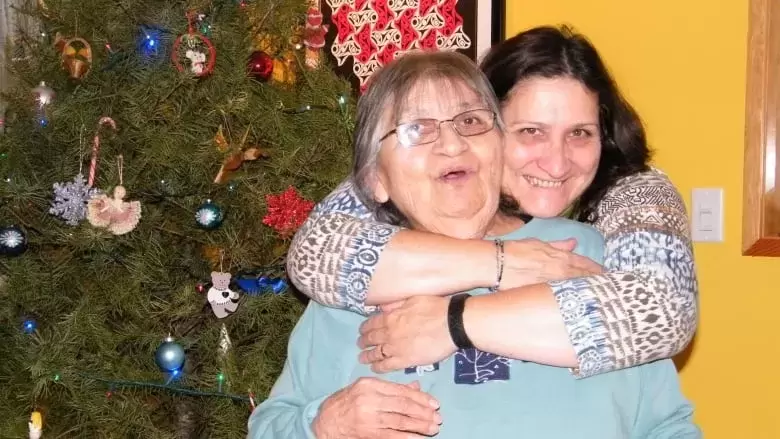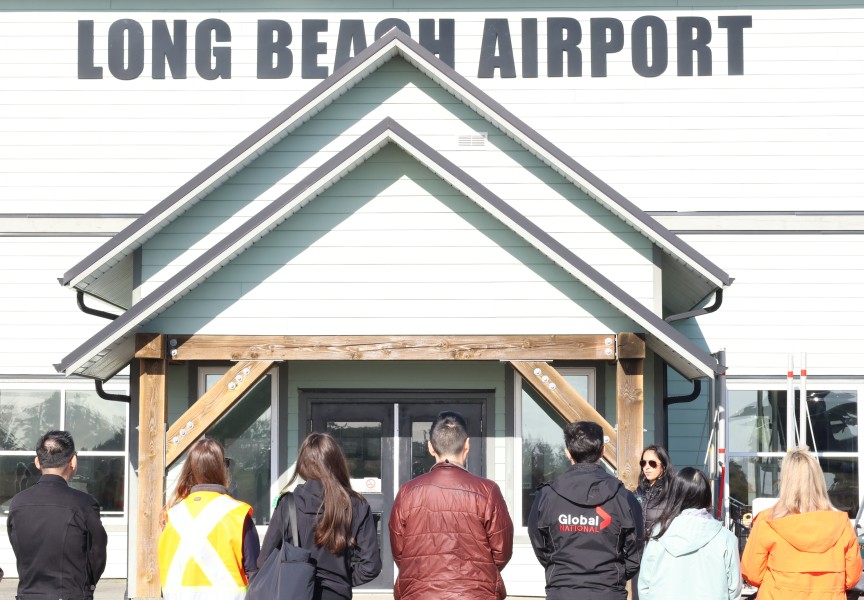Cheryl Aro began to notice changes in her mother, the late Kathy Danes, when she showed up at Aro’s house one Christmas with unwrapped presents.
“She had a bag full of gifts and none of them were wrapped, and she didn’t know who they were for,” recalled Aro of her mother, who was 66 at the time. “Right away I knew something was up.”
From the age of 7 to 16 Danes attended the Alberni Indian Residential School. Danes was at the Port Alberni institution year-round, as the Gitxan member’s home in Old Hazelton was over 1,000 kilometres away.
“Mom never really had a Christmas, so she made Christmas be this huge deal for us as kids,” said Aro. “There never was a Christmas where there wasn’t overflowing presents under the tree all wrapped really pretty. She was just a beautiful person, instead of being cranky and a drunk at Christmas, which is the way some people went who didn’t have Christmas, she went the opposite and made it be the most beautiful thing for her kids.”
But the unwrapped presents signaled changes were coming, and shortly afterwards Danes was diagnosed with Alzheimer’s disease, the most common form of dementia.
The class of disorders that encompass memory loss and the gradual deterioration of thinking ability affects 564,000 Canadians, according to the Alzheimer Society of Canada, but recent studies have suggested the condition could be growing among Aboriginal people, with an earlier onset. In 2002 the BC Provincial Health Officer reported lower dementia rates among status Indians than the general population, but by 2007 First Nations numbers had reached a similar level as other B.C. residents.
“The limited available evidence suggests that rates of dementia have been increasing more rapidly among Indigenous people compared to the general population, and that dementia onset may be earlier in Indigenous people,” stated a report by Jacklin and Walker (2012), cited in a study released last year by the National Collaborating Centre for Aboriginal Health.
That study also noted that dementia rates are expected to increase due to the higher prevalence of risk factors among Aboriginal people, including high cholesterol, hypertension, diabetes, smoking, obesity, alcohol abuse, low levels of formal education and depression. The NCCAH points to “the impacts of colonisation, including marginalization, intergenerational trauma, and substance abuse on their physical and mental health.”
Aro is conducting research into how dementia is affecting First Nations through a PhD dissertation project being conducted with the assistance of the Nuu-chah-nulth Tribal Council’s nursing department. Through extensive interviews with the caregivers of Nuu-chah-nulth elders with dementia, Aro aims to gain an understanding of the availability of resources to support caregivers and elders, as well as the extent to which childhood trauma contributes to the onset of dementia later in life.
She suspects this was a factor for her mother, who lost her mother to murder at the age of five.
“Her auntie took her in and of course the Indian agent found her living with her auntie, removed her and put her into residential school,” said Aro. “The research is dedicated to my mom and motivated by the fact that I was the caregiver of a person with Alzheimer’s disease.”
Studies have drawn a link between trauma and dementia, particularly among veterans. In 2010 the American Medical Association published the results of a vast, multi-year study of 181,093 people who served in the military, aged 55 and older. This examination found that of the veterans who didn’t have dementia in 2000, by the end of 2007, 17.2 per cent had gained a diagnosis with the condition. Those with Post Traumatic Stress Disorder were twice as likely to develop a form of dementia over the study period, particularly among Vietnam War veterans, who reported a 30 per cent rate of PTSD.
“The finding that PTSD is associated with a near doubling of the risk of dementia has important public health, policy, and biological implications,” stated the military study. “Post Traumatic Stress Disorder has emerged as a common sequela of combat and other trauma exposure, and its course is often chronic, leading to increased mortality and morbidity. As patients with PTSD age, these adverse health conditions usually increase in frequency, and some have suggested that PTSD may accelerate the ‘aging process’ in general.”
This year Aro is making connections with Nuu-chah-nulth communities, and travelling to remote settlements to meet with elders and their caregivers. She plans to finish her research into how dementia is affecting Nuu-chah-nulth-aht by the end of 2019.
“If trauma and PTSD are risks for dementia, then we’re heading for a tsunami of more cases in our communities that we need to prepare for,” she speculated.
Anyone interested in contributing to Aro’s research can contact her at aroc@uvic.ca or 250-218-9518.







